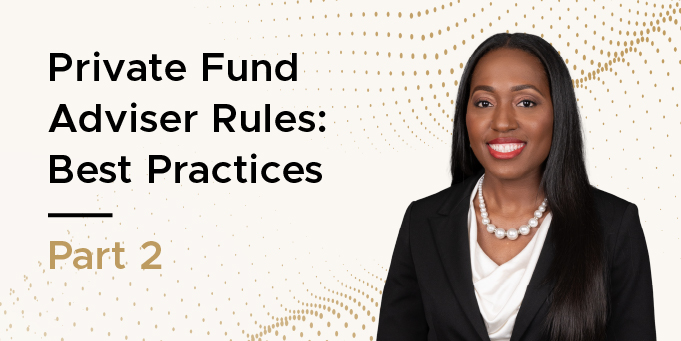
Considerations for Alternative Investment Funds During COVID-19: Capital Raising in the EU
- Published
- Apr 21, 2020
- Topics
- Share
As a follow up to EisnerAmper’s previous blog on Capital Raising in the series on Considerations for Alternative Investment Funds During COVID-19, this blog will discuss U.S. alternative investment managers raising capital from European Union (E.U.) investors.
Despite the added challenges COVID-19 has added to U.S. alternative investment managers raising capital from E.U. investors, some E.U. investors are indeed still allocating to managers that have fared well during the turbulent markets while others are redeeming. Once the pandemic passes, there is hope for new managers trying to raise capital from these allocators. However, it is important for U.S. managers to keep in mind certain rules they need to follow when marketing to European investors.
EisnerAmper heard from a handful of European investors some common themes:
- Many are bullish on credit managers, agreeing they are best positioned to raise capital given they are well-hedged. A capital introductions professional told us, “[A sub-$1 billion fund of funds] sees this as a buying opportunity and are particularly interested in credit opportunities. They have been impressed with their credit managers, one of whom came into the month bearish on Europe, well-hedged and up month-to-date.”
- Merger arbitrage had mixed sentiments. One European wealth manager said its merger arbitrage book fared the worst but argued there was a sense that short-term deals could go through, creating a bounce-back opportunity. “The team views this as a buying opportunity and will look to load on some beta in the coming weeks,” said one capital introductions professional. However, Richard Taglianetti, managing director of New York-based broker-dealer Corinthian Partners, said, “Merger arbitrage and distressed debt are definitely in the cross hairs right now. However, after the sell-off, a lot of new investments could be put on hold due to redemptions.”
- Speaking of redemptions, EU investors have collectively put in requests in the UCITs space with the expectation they would be harder hit than offshore funds. And when it came to looking at new investment opportunities, one European multi-billion dollar wealth manager said they are likely to hold off on new opportunities in the short-term, primarily due to difficulties around conducting due diligence in the current social climate.
- Finally, regarding new launches, there is hope for new managers once the crisis is over. “[A European $1 billion seeder and fund of funds] believe that new launch activity is entirely dependent on the perception of the hedge fund universe coming out the back of this crisis,” said a capital introductions professional. “The consensus currently is that, in the medium-term, the new launch environment will be in a good place.”
“We are certainly in a new era of capital formation globally. Investors no longer have the ability or desire to meet face-to-face with fund managers prior to committing capital,” said Alan Wink, managing director of capital markets at EisnerAmper. “Only time will tell if investors get comfortable making decisions by conducting virtual meetings. Due to COVID-19, virtual meetings are certainly their only option at the present time.”
When U.S. alternative investment managers consider marketing to E.U. investors, they should understand the various rules they need to follow including reverse solicitation, the National Private Placement Regime (NPPR) and the E.U. Marketing Passport.
It’s really important to understand not only where (geographically) U.S fund managers plan on marketing, but also what type of investor are they targeting.
With reverse solicitation, the potential investor initiates contact prior to making any capital allocation. Meanwhile, under the NPPR, non-E.U. alternative fund managers utilizing their existing fund structures (Cayman or Delaware) can continue to market in Europe without using the Alternative Investment Fund Managers Directive (AIFMD) passport, which allows alternative investment funds to be marketed to professional investors across the E.U. Finally, the E.U. Marketing Passport creates a straightforward distribution possibility by harmonizing the region under one regulatory regime. With this, U.S. managers will most likely need to create new fund structures in Europe to comply.
Rodney Laveau, a director with Carne Group, said one challenge that U.S. managers face is that existing NPPRs vary from jurisdiction to jurisdiction and the regimes are constantly evolving across territories. “In addition, some E.U. countries have tightened their NPPR in preparation for the very controversial topic of their eventual abolition in the next AIFMD iteration,” he said. “Non-E.U. fund promoters who are targeting a small number of investors in select territories and distributing funds in line with the NPPRs in each E.U. jurisdiction may be a distribution solution.”
He further elaborated that U.S. alternative investment managers marketing to Europe could consider having Europe-domiciled structures to show commitment to the region.
“We believe that having an E.U.-domiciled fund shows commitment to investors that you’re focused on the region. An investment in local structures provides more agility than trying to navigate the private placement regime and differentiates you from the cluster of managers trying to operate through reverse solicitation of an offshore product.”
What's on Your Mind?
Start a conversation with Elana
Receive the latest business insights, analysis, and perspectives from EisnerAmper professionals.











